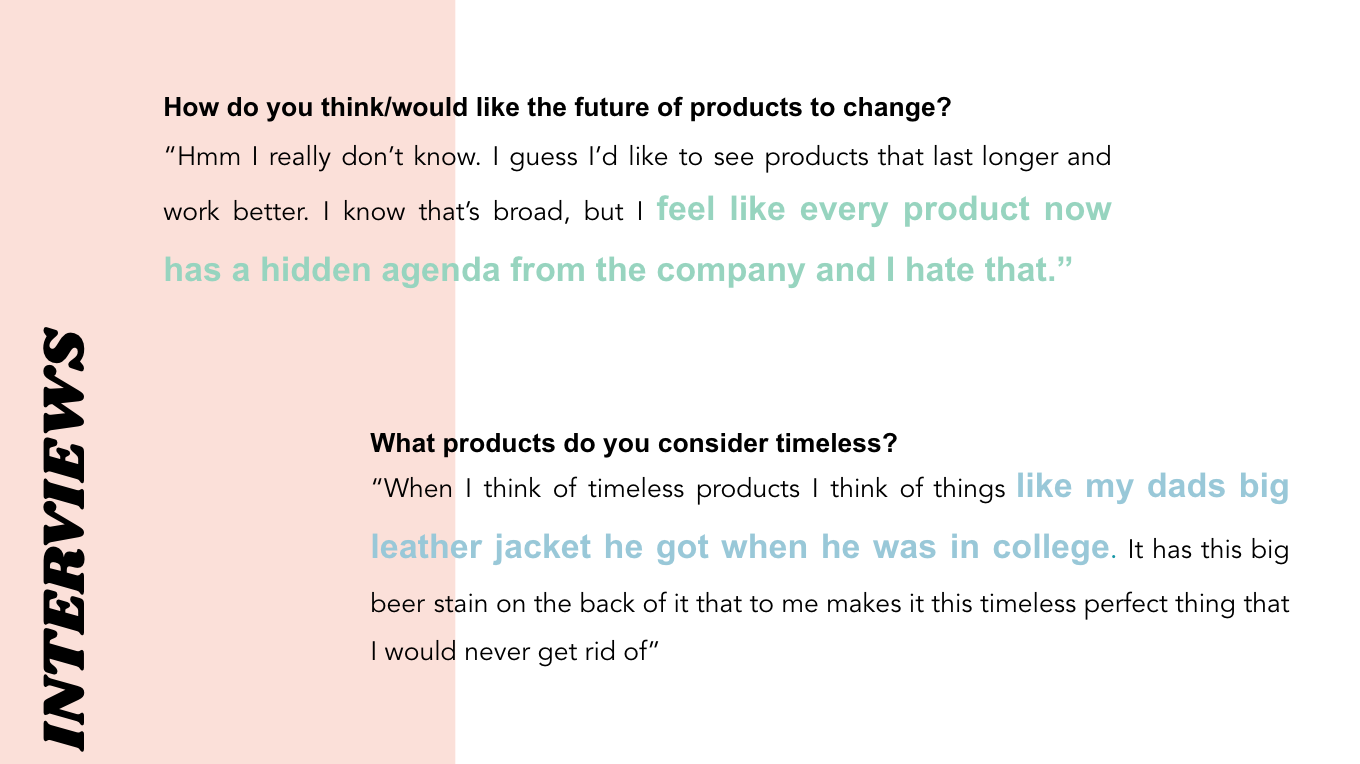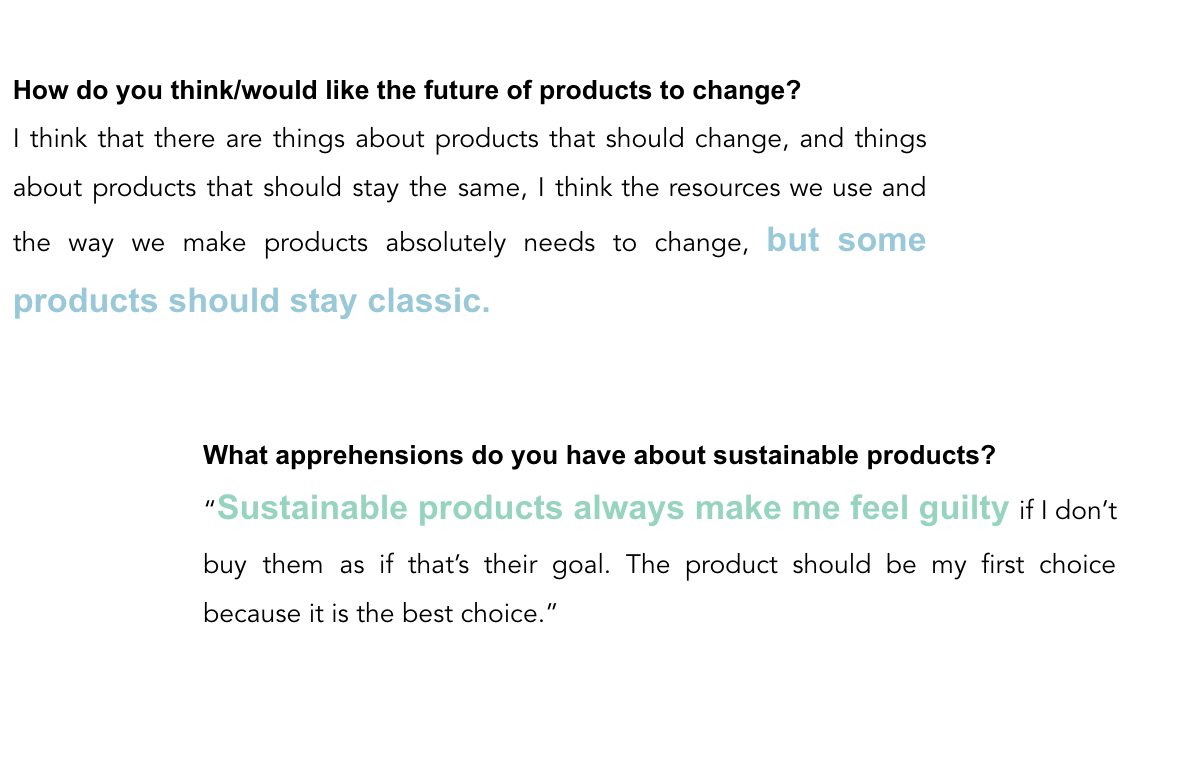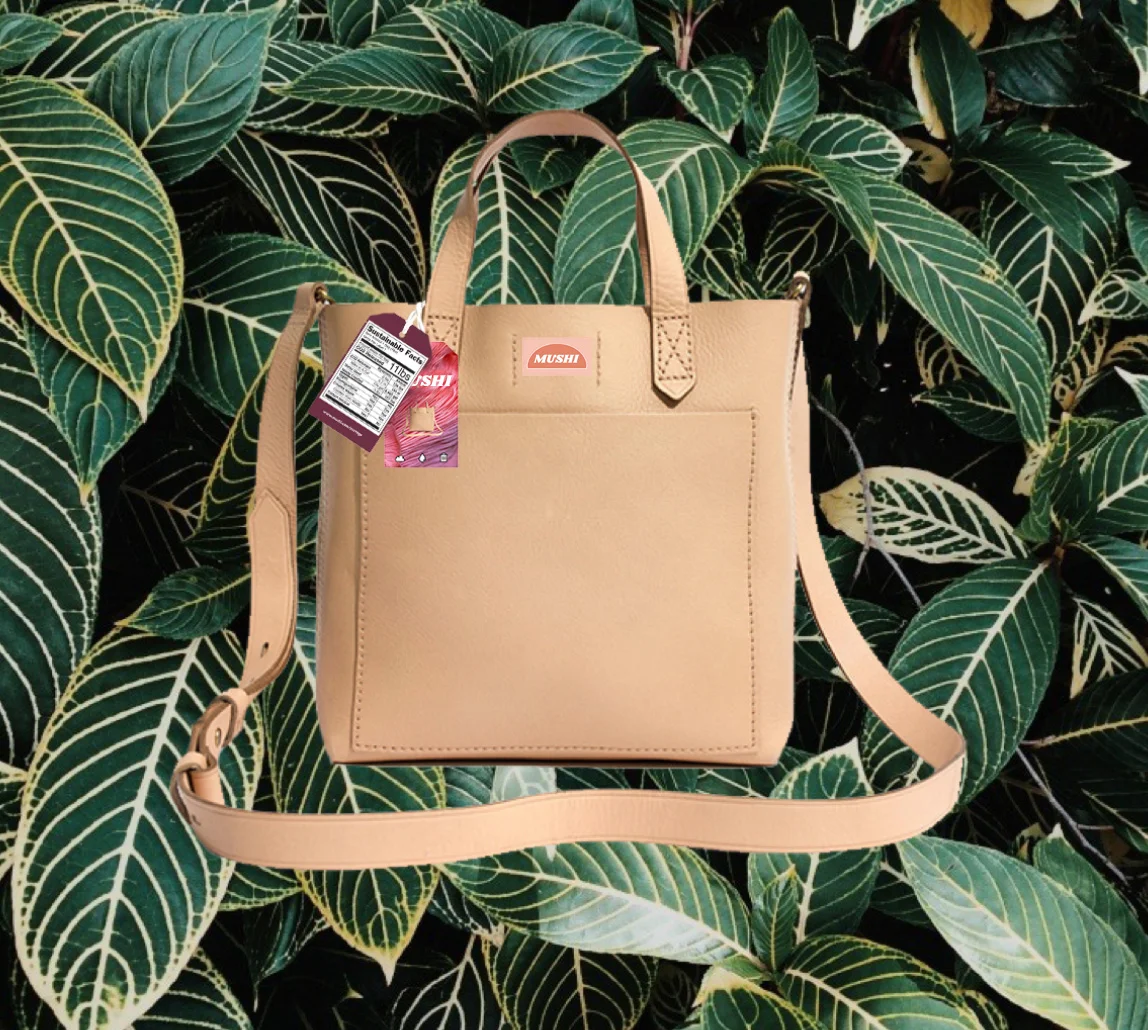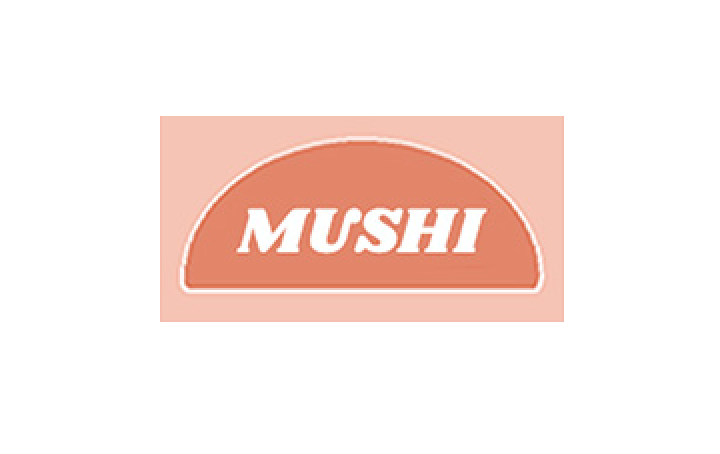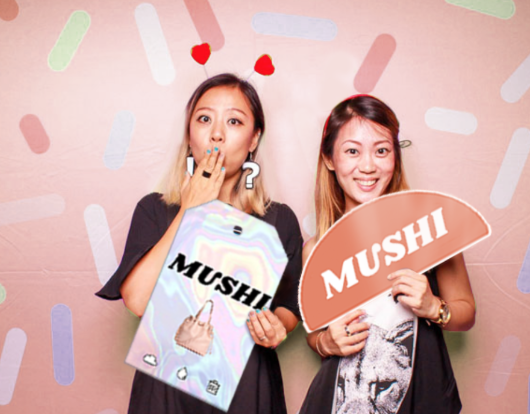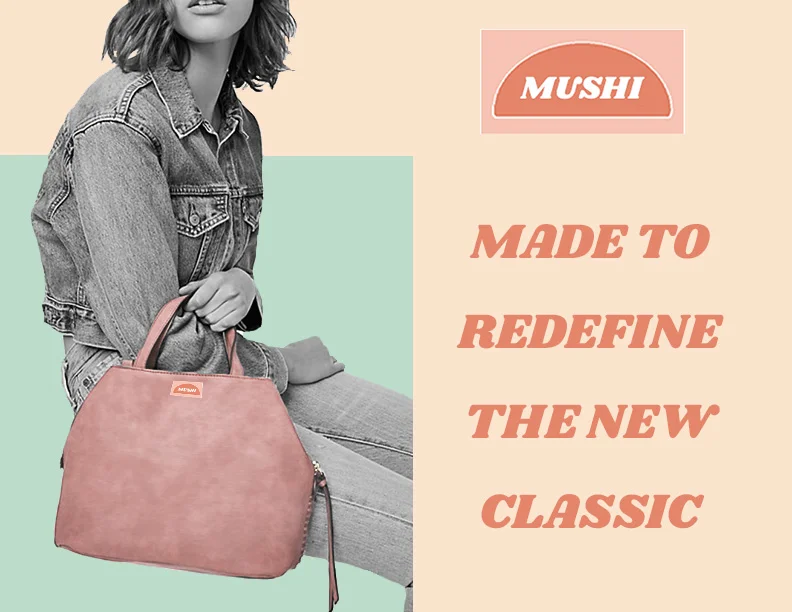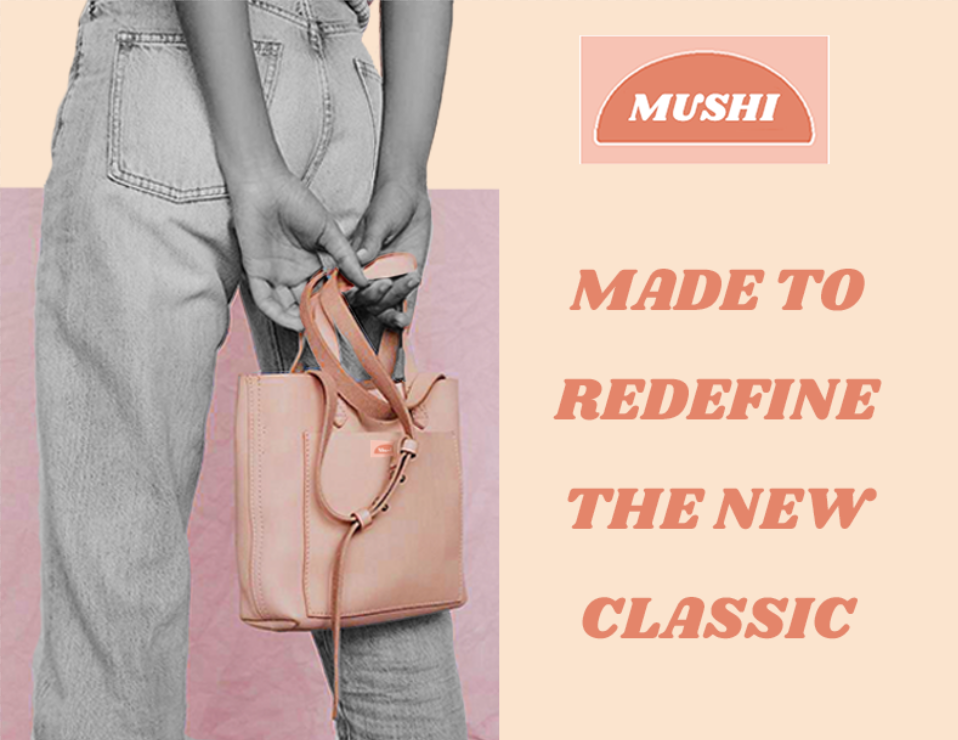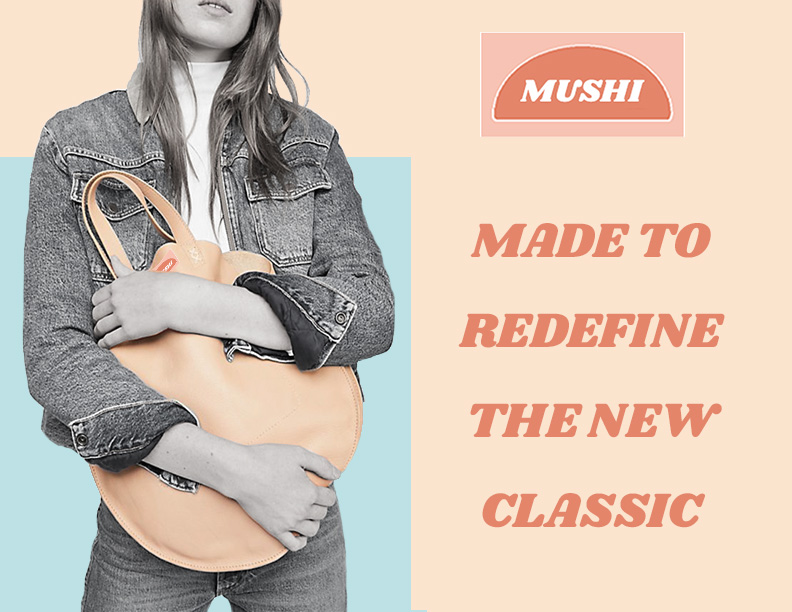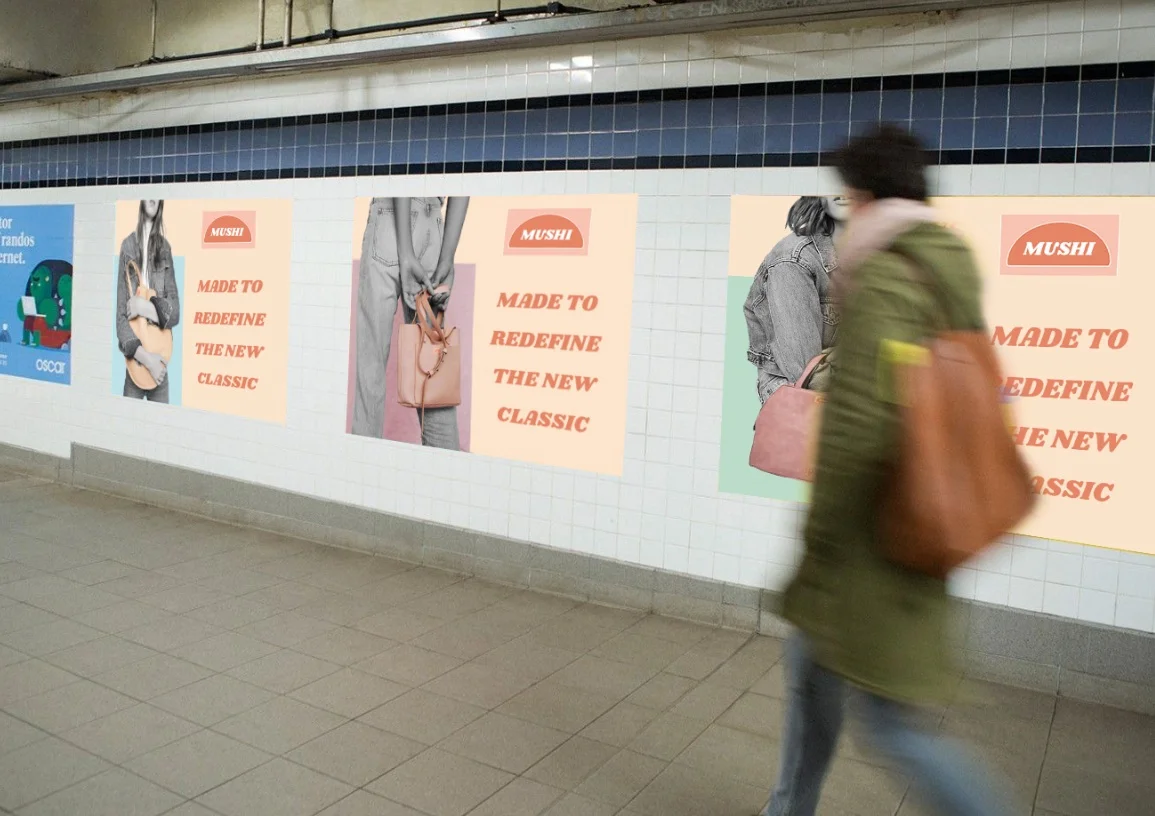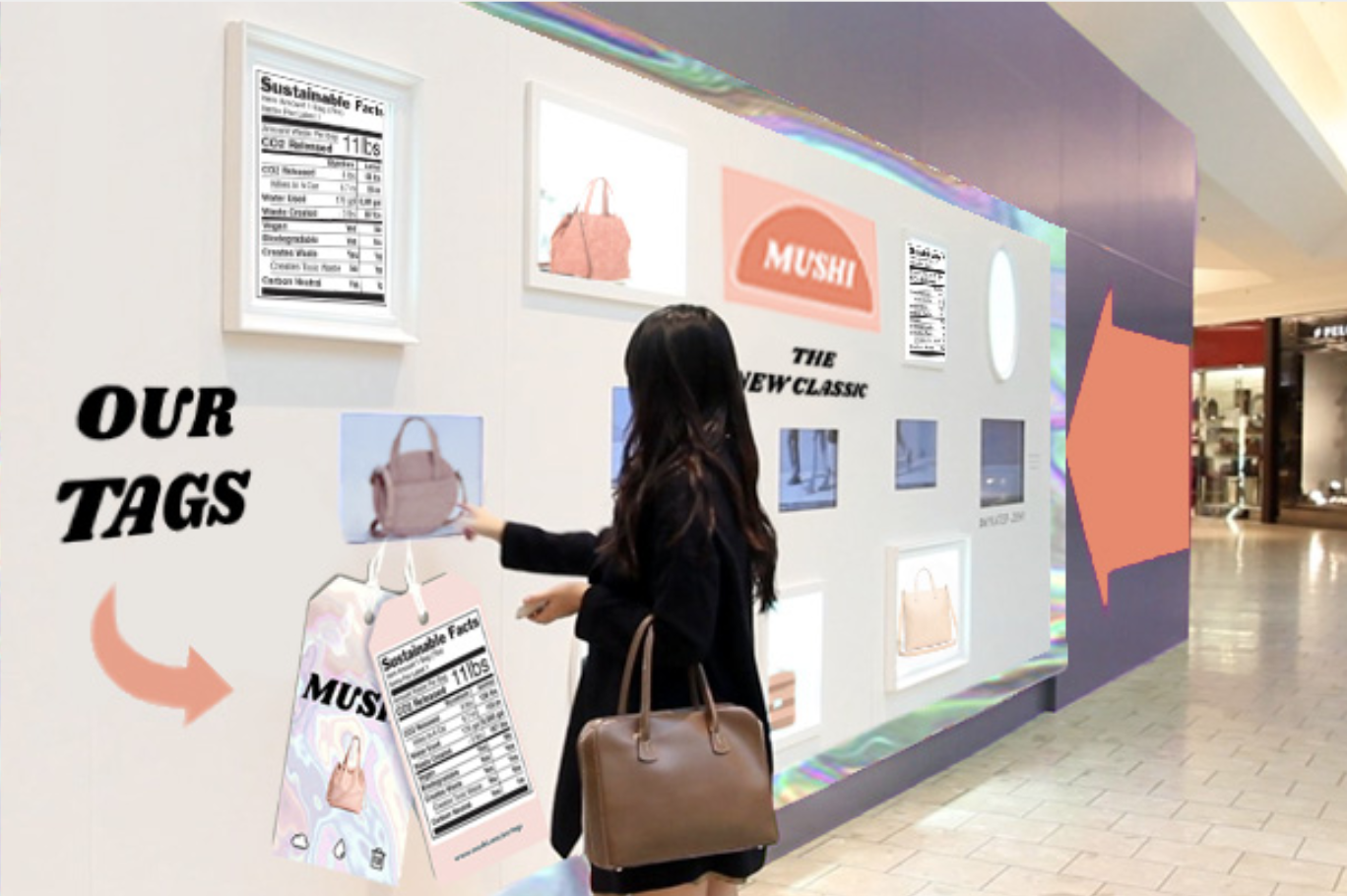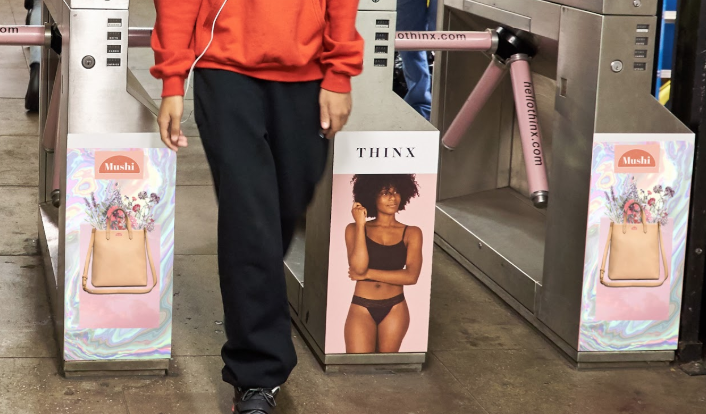
MUSHI
Rapid Prototyping, Sustainable Design, Trend Analysis, Branding

WHAT IS MUSHI?
MUSHI is a company I created to study the shortcomings of mycelium material in the leather industry to understand the difficulties the sustainable market faces. Mycelium continues to struggle with reaching consumers due to the stigma around sustainable products. Mycelium, like many sustainable materials is simply seen as an alternative / substitute to an original, non-sustainable counterpart. Thus, a redesign of the process companies take, including product image and market engagement would allow access to a more reliable market.

WHAT IS THE PROBLEM?
Why do consumers categorize sustainable companies as trend-chasing? With Mycelium, I saw a large difference in quality, science, design, and ecology compared to animal leathers. Yet I continuously received reluctance from consumers which seemed rooted in an idea that this new material was for science or for show, not for performance or practicality. The challenge laid in educating the consumer in a way that they did not see as guilt-inducing
ITERATIVE DESIGN PROCESS

DESK RESEARCH HIGHLIGHTS

CASE STUDY
Product Description:
A self proclaimed world's best alternative to animal leather in a sustainably-made vegan tote.
What it Lacks:
A compelling culture or movement that convinces people to be a part of
Questions:
1. Why do you want to buy this bag?
2. If not, what do you see wrong with it?
3. Do you feel a connection to the message?
4. Do you think young people will feel connected to the brand?
5. What apprehensions do you have about sustainable products?
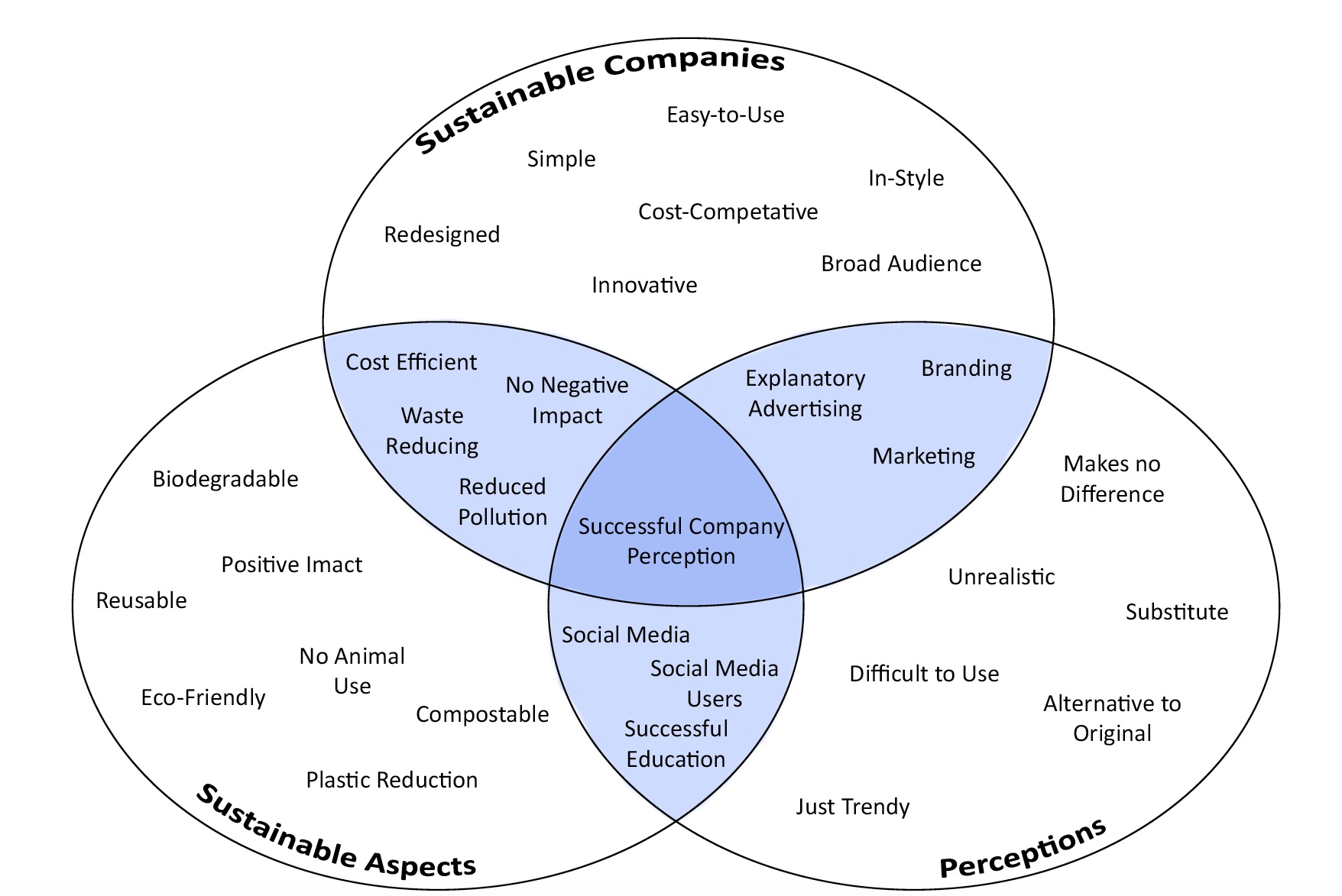
FIELD RESEARCH HIGHLIGHTS
IDEATION HIGHLIGHTS
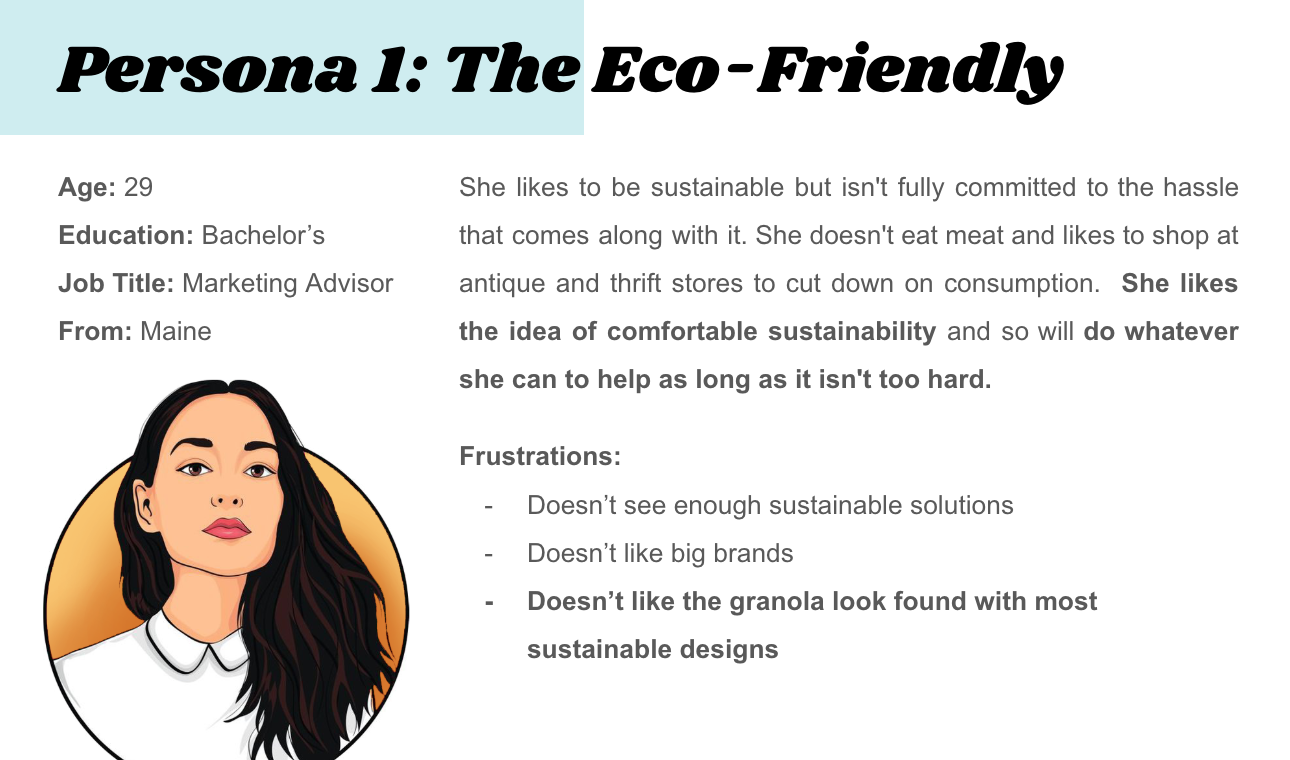


GUILT REMOVAL
You don’t argue with the facts on your food and drinks labels, do you? So why not expand it to your products too?
After vast desk and field research, I learned that for a sustainable company to be seen in its own category instead of as an alternative or a fad, the product must:
• First be perceived as the best choice, irrelevant of whether it is sustainable or not.
• Must not demand anything additional from the consumer, but instead allow them to get informed at their own pace
• Design / advertising should be expressive and strong. The science behind the sustainability should be non-judgmental, factual and easily accessible
THE BRAND


EXPANSION
The potential impact of MUSHI’s tags is to expand and to standardize how products express their environmental impact. Standardization normalizes the topic and removes the feeling of persuasion or guilt.
This would show that being sustainable doesn’t have to change your audience’s experience and doesn’t have to take away from a company’s brand.
